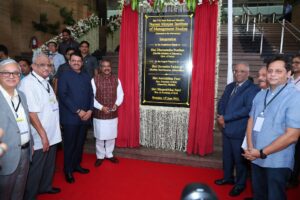
Inconsistent government actions has cast a shadow over developer sentiment; slows down capacity addition momentum. CRISIL Research expects solar power capacity additions of 48-50 GW between fiscals 2019 and 2023. However, developer sentiment has been negatively impacted by the lack of clarity on several policy issues and arbitrary bid cancellations, which is contrary to a supportive policy stance from the government.
Over fiscals 2017 to 2019, while previously tendered capacities continued to be commissioned apace, certain risks to future project implementation manifested. There were frequent bid cancellations, lack of clarity on GST procedures, and cost pressure from the imposition of the safeguard duty on imported cells/modules. While, GST clarity was lacking for over a year with a final decision taken in December by the GST council, it ended with an increase in taxation compared to what was expected by the industry.
Similarly, the safeguard duty has turned out to be a terrible blow, impacting costs of solar power projects and not resulting in any significant offtake for the domestic manufacturing sector. This was coupled by cancellation of bids post auctions as state utilities / SECI found tariffs to be higher than expectations. Close to 4.7 GW was cancelled in such a manner over March – December 2018.
In such a scenario, CRISIL Research’s outlook factors in the prevailing market dynamics, where regulatory/policy support is itself emerging as a key risk. The renewable energy domain is highly dependent on policy support and any uncertainty on that front can have strong negative consequences. Hence, considering the current regulatory haze, outlook has been revised downward. We continue to monitor the same and remain aware of a possibility of upsides to our call, once regulatory risk is mitigated to an extent. Further, adequate land availability, timely implementation of grid infrastructure, and the ability of players to raise low cost funds will also be crucial enablers.
The GST imposition has increased taxation rates across all components required to develop a solar power plant.
For instance, pre-GST, solar modules were exempt from any additional custom duties and value added tax (VAT) in
several key states. However, GST imposition now implies an additional IGST component (apart from existing BCD)
on imports and CGST + SGST for modules procured domestically (replacing VAT/CST). This caused a rise in taxes
(apart from BCD which is zero) from zero earlier.
Consequently, there was much confusion over the final tax rates applicable on a solar power project. The Ministry of
New and Renewable Energy (MNRE) did issue a clarification last fiscal that entire solar projects should be taxable
at 5%. However, if an engineering, procurement, and construction (EPC) contract included both supply and services
it would be adjudged on a case-to-case basis. This created further concern, as most projects were set up on an EPC
basis, whether in-house or outsourced. The issue lacked clarity for over a year, until the GST Council in December
2018 clarified with regards to EPC contracts by setting a ratio of 70:30 of the entire value of the EPC contract, where
70% will be taxed at 5%, and 30% at 18%, to factor in both the supply and service component.
This has caused much consternation in the sector as most projects are set up in EPC mode (both procurement and
services). Even a simple supply order usually involves a service component, which would again attract the GST rates
applicable to EPC contracts. The final tax rate works out to 8-9% instead of the earlier expected 5%, causing a cost
increase of 3-4% on final capital costs.



